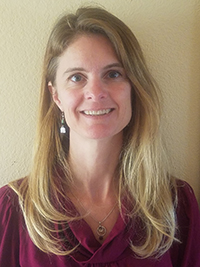
Photo by Annie Spratt on Unsplash
By Birgit Suess, Virtually ConnectEd
As parents, we want the best for our children. We want them to develop on the same schedule that is hanging up on the doctor’s office wall, we want them to be happy, do well in school and have friends.
All children face some sort of challenge at one point or another. It is not uncommon for children to have difficult with speech and language. If you are concerned about your child’s speech and language development, here are some things to look for.
Articulation:
Articulation is sounds in speech. The most common errors in English are /l/, /s/ and /r/. These sounds should start emerging around ages 4 and 5, although many children struggle with them until age 8. By age 8 a child should be able to say all the sounds in the English language.
Phonological Delay:
Phonological delays often get confused with articulation delays because the child is saying the wrong sounds, but it’s not that the child can’t say the sounds, it’s that the child doesn’t say them in the correct place. For example, these children often say “tup” for “cup” and “tat” for “cat.” The might also say “gog” for “dog.” For a 2 year-old, this is typical and nothing to worry about, but if your 5 year-old is still mixing up sounds, it’s a good time to bring him or her in to see your doctor or speech therapist.
Stuttering:
Also known as fluency, stuttering is a normal occurrence for everyone once in a while. When repeating sounds, words or having blocks (when there are moments of silence when a child is trying to ‘push’ a word out) become common and/or start to include eye blinking or leg slapping, it’s time to bring your child in for professional help.
Receptive Language:
How well can your child understand language? Does your child not respond to your requests out of defiance, or do they perhaps not understand you? Does your child have difficulties following directions or answering questions? Does your child point to objects instead of ask for them? These are all signs that your child may be having difficulty understanding language.
Expressive Language:
Your 2 year-old should have at least 50 words and start putting words together. By 3 years old your child should be able to play and talk with other children. How well can your older child formulate sentences? How clearly can he/she tell a story? Does your older child struggle with organizing their thoughts? A Speech Therapist can help with all of these issues.
If you’re still not sure if your child needs help, it’s always good to bring them in to the doctor and ask. The earlier you bring your child in for speech and language support, the better.
About the author

Birgit Suess, co-owner of Virtually ConnectEd, is a Swiss-American who grew up between the US and Switzerland and speaks English, German and Swiss-German. Because of a worldwide shortage of Speech Therapists, she uses technology to connect special needs students around the world with English-speaking Speech Therapists.
With almost 20 years of experience as a Speech Therapist and 10 years experience with Teletherapy, she is a pioneer in the Teletherapy world. Her personal specialty is working on social language with high functioning children on the Autism Spectrum. Her passion is finding new and innovative ways to help children with special needs.
https://www.virtuallyconnectedu.com








